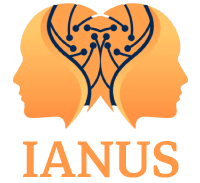The IANUS project has a mission: to restore people’s trust in science. We are doing this by making science more open to interaction with non-scientists, to ensure science is honest, understandable, and useful while taking people’s values and concerns on board.
What we are aiming to accomplish:
Judge What to Trust: We want to help people figure out what scientific information is reliable and what is not and how to think critically about scientific debates by having a better grasp of the dynamics of research.
Dealing with Uncertainties: IANUS will help navigate the complexities of science by providing resources and support to understand and interpret scientific findings. Open science is not only about disseminating results but first and foremost about explaining how science works while assessing how responsiveness, integrity, and relevance of science can be improved.
Changing How Science Works: IANUS is encouraging scientists to be more open, fair, and responsive to what citizens care about. By including citizens, stakeholders, and policymakers, IANUS intends to work together to generate knowledge and figure out ways to strengthen relevance and trust.
Ethical Science: IANUS promotes honest and unbiased research practices, to ensure results are both trustworthy and relevant for addressing urgent societal challenges.
Here is the plan:
Researching What is Out There: We are looking into all projects and discussions about trusting science to learn from them.
Creating a Conceptual Framework: The framework will act as a roadmap for understanding and dealing with the various aspects of trust in science.
Involving Everyone: We are talking to citizens, experts, and researchers to understand how trust in science works and how to improve it.
Taking Action: We will initiate practical initiatives that bring scientists and citizens together to foster trust in how science is done and in the knowledge it produces.
Policy Recommendations: The project will offer evidence-based policy recommendations to key stakeholders in science and society with the help of participatory policy labs. Stakeholders include funding bodies, universities, research teams, educators, and media outlets. This will help create an environment where people trust science more.
Creating Places to Talk: IANUS is setting up labs and platforms where scientists and citizens can meet and discuss science to build reliable trust between science and society.
Your participation in the research is voluntary and highly appreciated.
You can withdraw your consent at any time. You do not have to justify your decision to withdraw your consent and there are no consequences for withdrawing your consent.
Our aim is to create spaces for deliberation that are both engaging and safe. Our deliberations are designed in such a way that respectful dialogue is fostered while polarization or accusatory polemics are prevented.
Project funding
IANUS is an EU Funded project which aims at strengthening warranted trust in science, research, and innovation at a systemic level by encouraging participation in research as a co-creative and inclusive process, sensitive to societal values, concerns, and needs. The project is funded by the European Commission, through the Horizon Europe Framework Programme (HORIZON), under the topic “Societal trust in science, research and innovation” (HORIZON-WIDERA-2021-ERA-01-44 – Societal trust in science, research and innovation).
Who will benefit from the research
Through the IANUS team, but also the expert evaluators of our work, are convinced that our objectives will benefit society in various ways. If our objectives are achieved, our work will contribute to strengthening the quality, validity and relevance of research. Our aim is not only to restore public trust in science, but also strengthen the trust of scientists in the value of public deliberation on science and research-based policy. Thus, our work will contribute to bring scientific priorities and societal needs and values closer together.
Commitment to privacy protection
We are committed to ensuring the utmost protection of respondents’ privacy. All information provided will be treated with strict confidentiality, and steps will be taken to safeguard the identity of participants throughout the duration of the study.
We unequivocally commit to treating all personal and sensitive information provided by participants with the utmost confidentiality. Safeguarding the privacy and security of your data is our priority, and stringent measures will be implemented to ensure its protection throughout the research process.
All data collected, including your personal data, will be used for analysis only and exclusively for the IANUS Project and will be reported only in aggregated form. There will be no direct reference to your person. Draft versions of transcripts will be shared with participants to invite comments and corrections. If you would like a copy of the products resulting from analysis, please check our website or follow us at on our social media:
LinkedIn: https://www.linkedin.com/company/85634806/
Facebook: https://www.facebook.com/IANUSproject/
Twitter: https://twitter.com/IanusProject
YouTube: https://www.youtube.com/channel/UC4DDS7dFZwUT_45yegaYZrA
Who will have access to your data?
It is intention of the consortium members to make the metadata, data and other research outputs available to others in the context of open and responsible research, so that our work is transparent and accessible. Yet, as indicated in our data management plan, the data will by anonymised or pseudonymised to balance requirements of transparency with privacy requirements. Data that can still be linked to individuals can only be published with consent.
All research findings will be published in open access journals and will be made available on the project’s website.
We encourage participants to seek additional information about the research, and we are more than willing to provide any further details upon request. Your understanding and comfort with the study are important to us, and we are available to address any questions or concerns you may have.
Who to contact with questions or concerns?
For any queries or concerns related to the research, please feel free to contact Ekaterina Voynova at ekaterina.voynova@eur.nl. We are here to assist you and ensure that your questions are promptly addressed.
